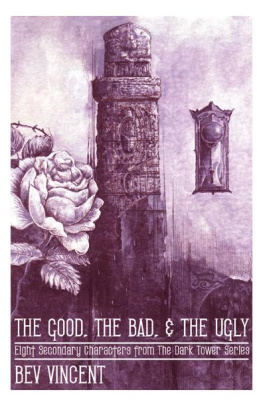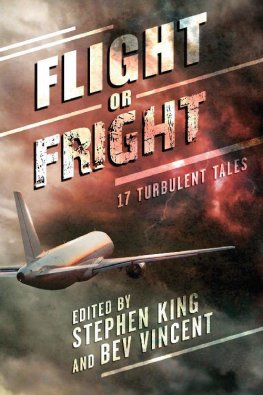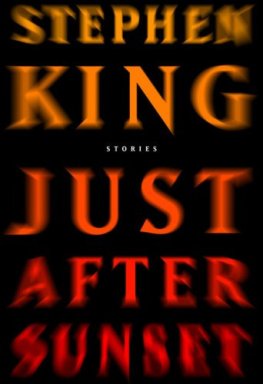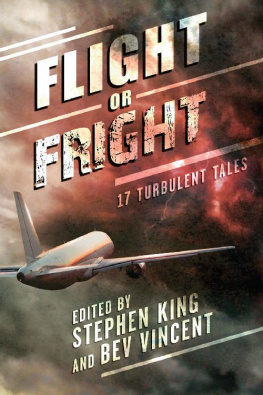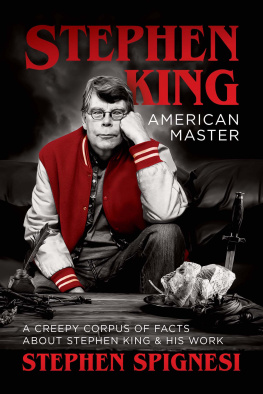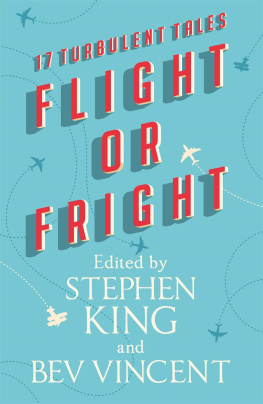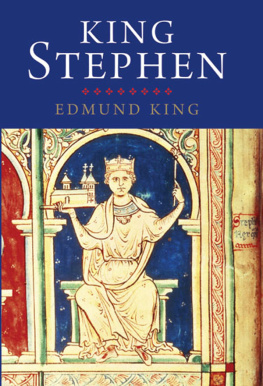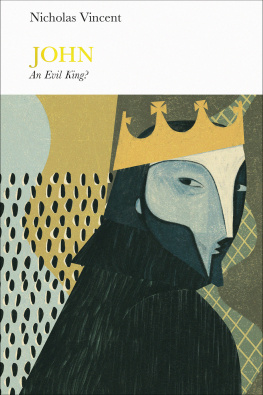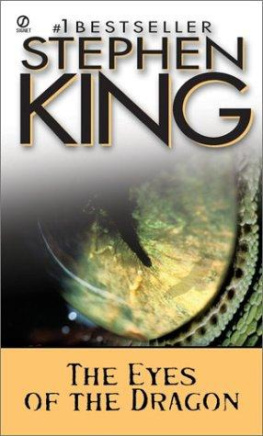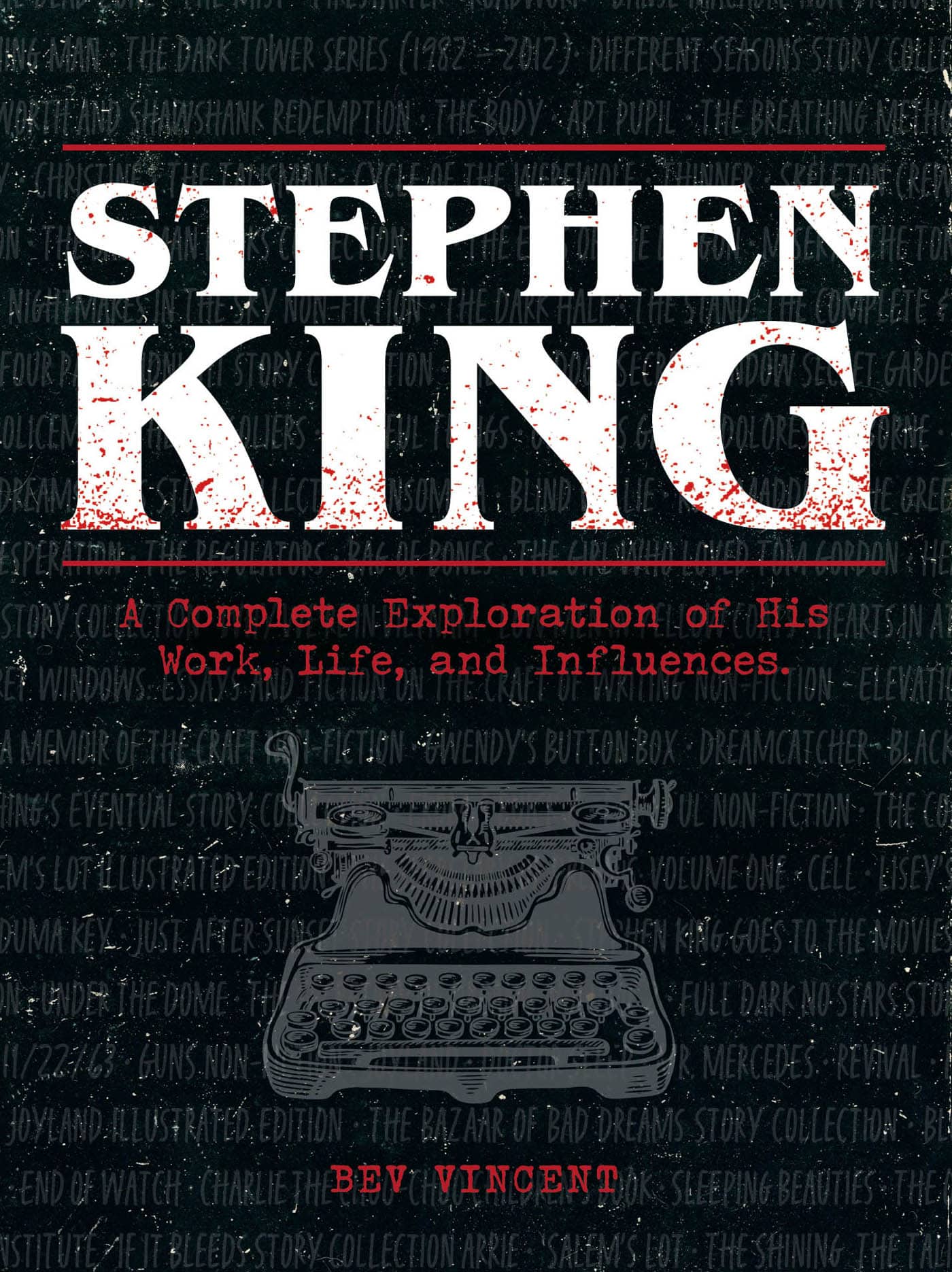Stephen Kings Bangor home, the William Arnold House, styled after an Italianate villa, stands behind a wrought-iron fence decorated with bats, spiders and webs.
However, few of the other writers he identified as his peers in other genres at the time are still household names, which attests to the fact that his success wasnt due only to fortuitous timing. The undeniable brilliance of Kings storytelling abilities has propelled him to the top of bestseller lists time and time again. Regardless of the state of the horror genre in the intervening years, King has continued to thrive. And he doesnt restrict his writing to the genre for which he is best known. In recent years, for example, he has published award-winning crime novels, and his magnum opus is a long fantasy series. He is sui generis, a category unto himself.
King has undertaken a unique journey, from impoverished university student to struggling schoolteacher to one of the bestsellingand most recognizableauthors of all time. He has embraced every innovation technology has offered, both in publishing and in promoting his work. In the 1990s, he reinvented the serial novel and experimented with electronic publishing long before it was popular. In the twenty-first century, he is using Zoom interviews, Twitter, YouTube promo clips, and animated comics to find new audiences for his work and reach his legions of Constant Readers.
Undated cemetery photo from Kings collection.
In addition to being the author of novels, short stories, and essays, he is a screenwriter, film producer, movie director, and actor. He has appeared in TV commercials, been featured on the cover of Time magazine, founded charities, won prestigious awards and hasat lastreceived critical approval for his work.
Nearly half a century after the publication of Carrie, hundreds of millions of copies of Kings books have been printed in fifty-plus languages. Most of his scores of novels have been filmed, and many of his short stories have been expanded for the big and small screens. Hardly a year has gone by since the mid-1970s without one of Kings books appearing on a bestseller list or with an adaptation playing in theaters or on a streaming service. However, it isnt just brilliant marketing that keeps readers rabid for more; such long-term success can only be attributed to the irresistible grip his writing holds on millions of readers.
While people may feel they know Stephen King through his extensive body of work, it is important to remember that novelists make things up for a living. Evenperhaps especiallywhen they are writing autobiographically, they cant resist the temptation to improve on the story. Whatever happens to us feeds into whatever we write, King has said.
This book, published on the occasion of Stephen Kings seventy-fifth birthday, captures many of the events that inspired his works, using his novels as a lens through which to observe his life. The personal ephemera accompanying this illustrated companion provide a tangible encounter with the life and creations of the master of horror.
THE FUTURE ARTIST AS A YOUNG MAN
(19501969)
T here is a well-known legend that Stephen King suddenly arrived on the publishing scene with Carrie in 1974. As with all legends, there is some truth, some fantasy, and much oversimplification to that notion. The often-told tale pays short shrift to Kings long apprenticeship. By the time Carrie appeared, King had been writing for nearly twenty years and had been a published author for a decade.
Stephen King was born in Portland, Maine, on September 21, 1947. His parents, Donald and Ruth King, believing they were unable to conceive, had adopted another son, David, who was two at the time of Kings birth. When King was two, his father abandoned the family and was never heard from again. His mother worked menial jobs to support her family.
The family moved frequently, living in Wisconsin, Indiana, and Connecticut. King missed most of his first year of school because a case of tonsillitis blossomed into infections that required excruciating ear-lancing procedures. The family didnt own a television, so King had to rely on his imagination to entertain himself during that year, which he spent mostly in bed.
My childhood was pretty ordinary, except from a very early age I wanted to be scared.... My imagination was very active even at a young age, he said. For instance, there was a radio program at the time called Dimension X, and my mother didnt want me to listen to that because she felt it was too scary for me, so I would creep out of bed and go to the bedroom door and crack it open. And she loved it, so apparently I got it from her, but I would listen at the door and then when the program was over Id go back to bed and quake.


